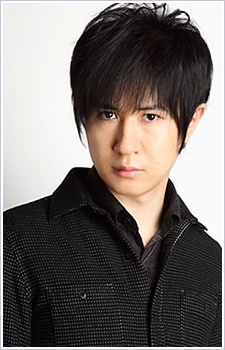今日の晩(きょうのばん)は八時(はちじ)デバートロで映画(えいが)を見(み)ました。この(this) ムービーナイトの映画はみやざきさんのほたるのはかです。本当に(ほんとうに=really)悲しい(かなしい=sad)映画です。でも僕はちょっと(little bit) 怒る(おこる=angry)です。なぜですか(why?)。それの理由(りゆう=reason)はせつこの死(し=death)。せつこの死はかいひできるでした(was avoidable)。
Ok, I'm pretty sure I made several mistakes trying to google words to talk about the movie in Japanese so please excuse my わるいにほんご。 I will now continue in English.
Miyazaki's movies usually have lots of social commentary and
Grave of the Fireflies is no exception. There is a lot of obvious anti-war sentiments shown throughout the movie but one thing that really stood out to me was Seita's pride and the interactions between him and the adults. There is zero compassion from the adults for the war orphaned children throughout the film. This disconnect can be seen in the beginning of the film where the janitors casually mention "oh, there's another dead kid." It can be seen again when Seita and Setsuko move in with their aunt, and when Seita is caught stealing from the farmer. I believe Miyazaki is trying to remind people to have some shred of empathy for others, especially now in this modern age where people are too preoccupied with themselves and often turn a blind eye to those in need. This brings me to my other point, which is Seita's pride.
After suffering through his aunt's verbal abuse, Seita makes the decision to take Setsuko and move into some shelter by a lake. While it's certainly brave of Seita to do this, we soon see how foolish of a decision it actually is. A crucial point in this movie is when Seita has run out of food and tries to get more from a farmer, but the farmer refuses him. However, the farmer offers him some advice. He tells Seita to suck up his pride, and beg his aunt to take them back in. He also tells him to be brave, as he is a Navy officer's son, but is he telling him to be brave to march on and continue taking care of Setsuko on his own? Or is he telling him to be brave and confront his aunt? I think this is a critical scene that shows the effect of the disconnect between the older and younger generations. Seita's unwillingness to seek out his aunt for help isn't unwarranted given the fact of how much of a bitch his aunt is, but Seita refuses to throw his pride away, not even for the sake of Setsuko... and I guess that's why I was a little bit mad about her death. I believe Miyazaki is trying to show people that both generations are in the wrong. The older generation is too critical of the younger generation, while the younger generation is too prideful. This behavior has caused a rift that'll only continue to widen in the modern world as people operate more like robots that cannot empathize with others.
Maybe I'm just grasping at straws. I need to go watch something happy to balance things out.
恋愛ラボS2はどこですか。(れんあいラボ=Love Lab).

 (おこのみやき)
(おこのみやき) (おこのみやき)
(おこのみやき) (たこやき)
(たこやき)

